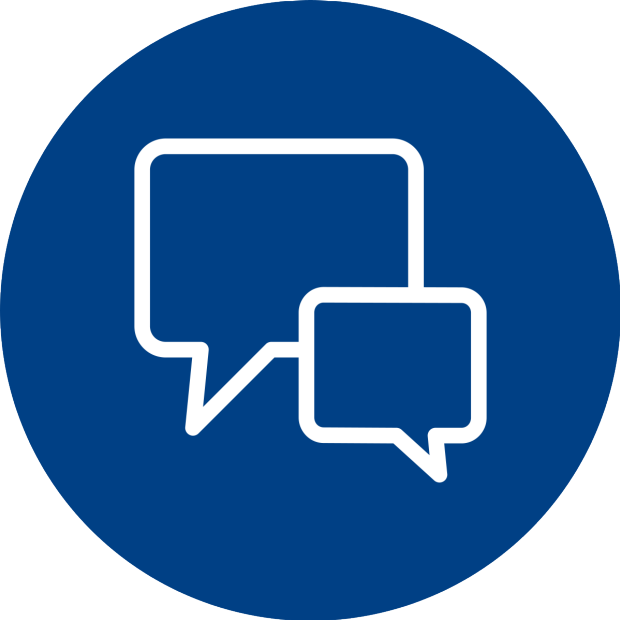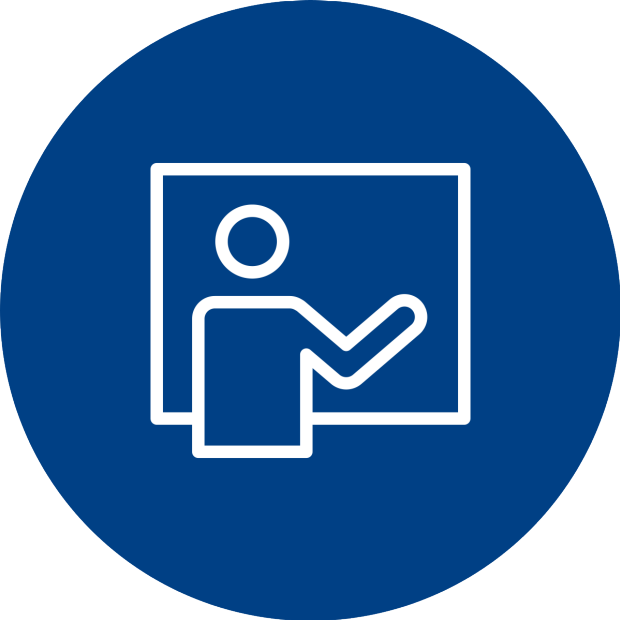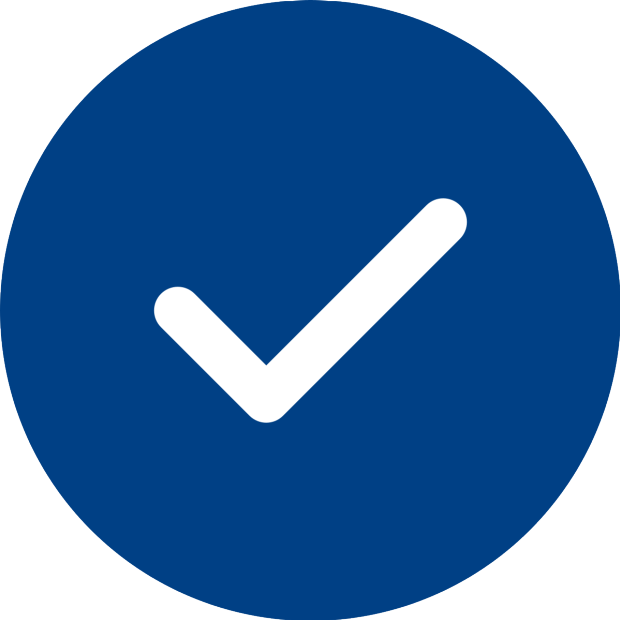Reading Period
At the end of each term - ordinarily a period of six or seven days but occasionally shortened to five days due to term start and number of instructional days in the term - prior to the start of the Final Examination Period is designated as Reading Period. Reading Period is intended to be a time for students to reflect, review, and synthesize what they have learned during the semester. To protect this educational purpose, the following rules apply during Reading Period:
- With the exception of designated intensive language courses, no regular instruction may take place during Reading Period. Sections and review sessions may take place during Reading Period as may class sessions that must be made up due to weather or other emergencies.
- Courses may not assign new material during Reading Period.
- All seated Final Examinations, of whatever duration (up to three hours) or scope, must take place during the course's Exam/Final Deadline Group as assigned by the Registrar's Office. (See also, section on Final Examination Period below.)
- Final papers, take-home exams, projects, presentations, and other culminating course assignments due after the end of regular classes must be due on or before the day of each course’s assigned Exam/Final Deadline Group, but no earlier than the fourth day of Reading Period. Final projects that include individual or group presentations may be scheduled beginning on the fourth day of Reading Period and may extend through the Final Examination Period.*
- Short, regular assignments that address material covered in the last two weeks of classes (such as problem sets or response papers) may be due during the first three days of Reading Period.
Regardless of whether a class meets during Reading Period, that time is an integral part of the term. Students are expected to remain in the immediate vicinity of Cambridge throughout this period.
* Each course will be assigned an Exam/Final Deadline Group to spread out student deadlines and to establish grading due dates. While instructors may establish earlier deadlines per faculty legislation, the spirit of this recent change is to spread students’ final assignment deadlines across the entire Exam Period to avoid having all assignments due at the same time. If an instructor decides to use an earlier deadline it is very important that students are well informed about this change from the posted deadline.

Final Examination Period
Courses that culminate in a Final Examination of any duration (up to three hours) must hold their exams during the designated Final Examination Period and during the Exam/Final Deadline Group assigned by the Registrar’s Office. There are two exam sessions each day: morning exams begin at 9:00 AM, and afternoon exams begin at 2:00 PM.
Field Trips
Academic field trips should not take place during Reading or Final Exam periods. Instructors who wish to include an academic field trip or project that would take students away from campus must obtain permission from the Office of Undergraduate Education .
- Study resources
- Calendar - Graduate
- Calendar - Undergraduate
- Class schedules
- Class cancellations
- Course registration
- Important academic dates
- More academic resources
- Campus services
- IT services
- Job opportunities
- Safety & prevention
- Mental health support
- Student Service Centre (Birks)
- All campus services
- Calendar of events
- Latest news
- Media Relations
- Faculties, Schools & Colleges
- Arts and Science
- Gina Cody School of Engineering and Computer Science
- John Molson School of Business
- School of Graduate Studies
- All Schools, Colleges & Departments.
- Directories
- Future students
- Current students
- Alumni & friends
- Faculty & staff
Office of the Provost and Vice-President, Academic
- Meet the Provost executive team
- Meet the Deans
- Areas of leadership
- Office directory
- Key initiatives
- Provost's Circle of Distinction
- President's Excellence in Teaching Awards
- Academic Leadership Awards
- Tenure recipients, promotions and tenure-track hires
- Distinguished Professors Emeriti
- Academic Program Appraisals
- Curriculum proposals
- New full-time faculty
- Part-time faculty
- Academic visitor access
- Teaching Assistants
- Academic leadership
12-week term and fall reading week
Since summer 2023, all Concordia terms are 12 weeks in length, which has allowed for the implementation of a fall reading week at Concordia.
Why change now?
The decision to implement a fall reading week and shift to 12-week terms comes as a result of listening to student feedback across all faculties, Concordia's commitment to health and wellness, including mental health, and aligning with the practices of other Canadian universities . Concordia's goal with these changes is to continue to support students and faculty in order to create an environment where everyone can thrive. With the launch of the fall reading week, each term is now 12 weeks long for consistency in the length of the summer, fall and winter terms.
Consult the 2023-24 and 2024-25 academic year dates
For students, a week-long break from classes:
- Offers catch-up time for coursework and preparation for midterms;
- Accommodates those who wish to travel home to visit family;
- Offers mental health benefits such as lowering anxiety and stress by giving a pause during the term;
- Creates conditions for increased student success.
For faculty, a week-long break from teaching:
- Offers catch-up time for teaching activities (course prep, grading, etc.);
- Provides intensive research time in the middle of the term;
- Supports writing of grant applications during high season;
- Facilitates the planning of out-of-town academic outreach activities.
Reading week general guidelines
Beginning in the 2023 academic year, a reading week is being implemented in the fall term along with the established reading week that takes place in the winter term. The reading weeks were created to offer a pause in structured academic activities each term so that students can catch up on work and visit friends and family, and to offer faculty a break from teaching to focus on research and preparation for future course work. The following guidelines were developed to provide clarity on the reading weeks.
- The University will remain open during each reading week.
- Optional activities may take place on our campuses to support student success and faculty development.
- No test or quiz will be administered, nor will any assignment be due during the fall or winter reading weeks.
- Only deferred and supplemental exams from the previous semester may be held during the reading weeks.
- No academic activity or event that requires mandatory attendance will be scheduled.
- Internship/fieldwork/co-op and work-integrated learning hours will continue during the reading weeks. No assignment will be due and no course meeting will be scheduled and students are encouraged to take a break if they are on track with hours and external agency requirements.
- Other than the President’s holiday during the winter reading week, working hours will remain the same for staff.
Frequently asked questions
Why is concordia implementing a fall reading week and moving to 12-week terms.
The shift to a 12-week term was a decision made by Concordia's Senate to permit the university to add a week-long break around the Thanksgiving weekend, and to allow more time between terms. Many other Canadian universities also offer a fall reading week.
Where can I find more information and updates?
The latest information, including resources for faculty, are available on this page. Other questions or concerns can be addressed to [email protected] . Information sessions were also held in spring and fall 2022.
How does this impact the exam period and class assignments?
The exam period remains the same and there is no impact on class assignments. Students can use the fall reading week to catch up on their academic work and work on any course assignments.
Does this affect the timing of registration?
No. Registration timing remains the same.
Is the availability of student services changing?
No. Student services' availability remains the same.
I am in an accredited program. Does this change impact my program?
The 12-week term and fall reading week does not affect accredited programs. Any concerns or questions related to accredited programs can be directed to [email protected] .

Does this change affect eligibility for internships?
The 12-week term and fall reading week does not change eligibility for internships. Any concerns or questions related to internships or work terms at the Institute of Co-operative Education can be directed to [email protected] .
Is the campus open during the fall reading week?
The libraries and services are open during the fall reading week.
Will anything be organized for students during the fall reading week?
Yes, a variety of activities for students and faculty will be held on our two campuses. Take a look at what's happening during reading week .
Is there any requirement to be on campus during the fall reading week?
No courses are scheduled during the fall reading week. Programs and services are offered for students during this break, but attendance is not required.
Is the summer term also being contracted to 12 weeks?
Yes. The full summer term will shift from 13 weeks to 12 weeks in length. The first and second summer terms will shift from 6.5 weeks each to 6 weeks each.
If a summer term is the first term of a new academic year, does this begin in summer 2023 rather than fall?
The 12-week terms begin in summer 2023, and continue in fall and winter.
Learn how we have been implementing these changes

PHASE 1 – FALL 2021 TO SPRING 2022 In 2021, the working groups were created and this initiative began, with collaboration between stakeholders, faculty councils, executives, and departments. In 2022, the focus is on communicating to create awareness of the fall reading week and 12-week term initiative ↓

PHASE 2 – SUMMER 2022 TO SPRING 2023 Academic planning, training, logistics, and providing support and resources to faculty ↓

PHASE 3 – SUMMER 2023 Implementation of the changes; a 12-week term beginning in summer 2023, a 12-week fall term with the new reading week, and a winter 12-week term with its established reading week
Working groups
These three groups have been working on implementing this new initiative at concordia., 1. logistics.
This working group meets weekly to review 12-week term/fall reading week. The group is responsible for drafting the schedule for the 2023-2024 academic year with 12-week terms starting in summer 2023 and adding the fall reading week, and will review examples from other universities. The logistics group will also consult with the academic sector to set the dates for exams and identify any calendar changes necessary and address any logistical issues of making the transition.
Meet the logistics working group members
2. internships.
This working group meets biweekly to review the 12-week term/fall reading week transition concerns and issues specific to internships and work terms with the Institute of Co-operative Education. The group’s mandate is to review specific unique elements of academic programs with internships and will address concerns and make recommendations. The internship group includes representation from the faculties, from the Experiential Learning team and from the Institute for Cooperative Education. The group isa resource for departments who have specific concerns. The group is also reviewing practices at other universities with a fall reading week and 12-week terms.
Meet the internships working group members
3. accreditation.
This working group meets biweekly to review the 12-week term/fall reading week transition to address any implication of the transition on accreditation concerns. The group includes representatives from each of the faculties with accredited programs and the Centre for Teaching and Learning.
Meet the accreditation working group members
If you have questions or would like to know more about the 12-week term/fall reading week, please reach out to [email protected] .
© Concordia University

Chicago Maroon

Your Guide to UChicago’s Reading Period

As the quarter winds to a close, that can only mean one thing: finals. Between the last week of classes and finals week, the University institutes a three-day “College Reading and Review Period.” Here’s the Maroon ‘s guide on what exactly reading period entails, what it requires of instructors, and what you can do if your instructors don’t follow those requirements.
What is reading period?
Reading period is intended for students to be able to review the material in the courses they are currently taking ahead of their finals. During reading period, instructors and teaching assistants may hold review sessions for students to go over class material, but the choice to do so is at their discretion. No new material can be introduced during classes, assignments may not be due, and, of course, final examinations will have to wait until reading period is over.
When does reading period start and end?
The fall 2024 reading period begins on Saturday, December 7 and ends on Monday, December 9. Until the 2021–22 academic year, reading period was four days long, covering the Thursday to Sunday before finals week. The change was made as part of a series of major calendar reforms that included moving to a nine-week quarter.
If my class decides that we don’t need a reading period, can we vote not to have it?
That is expressly forbidden by University policy. Reading period is mandatory for all classes.
What can students do if an instructor has violated reading period rules?
To redress the issue, students should first contact their instructor to inform them of reading period’s rules. Students can also use this form from the Student Advocate’s Office (SAO) to report violations. Students can also contact [email protected] with any questions.
“If a professor is in violation of this policy, students can file a report with the Student Advocate’s Office (SAO), which will then be anonymized and passed on to the Dean of Student’s [sic] office,” SAO Lead Caseworker Jessie Wang said in a statement to the Maroon . “With that being said, however, students are highly encouraged to reach out on their own to request a schedule change first before contacting the SAO. In our experience, most professors are simply unaware of these policies and would be happy to accommodate a change once they’ve been informed.”
What else happens during reading period?
On Monday, the last day of reading period, the Reynolds Club hosts its traditional late-night breakfast from 10 p.m. to midnight to kick off finals week. Also on Monday, students can attend Primal Scream at the “Nuclear Energy” sculpture at 9:59 p.m., where students can collectively let out their emotions by yelling.
- Finals Week
- Reading Period
- University Rules
Your donation makes the work of student journalists of University of Chicago possible and allows us to continue serving the UChicago and Hyde Park community.

Comments (1)
Cancel reply
Your email address will not be published. Required fields are marked *
zman / Dec 9, 2024 at 4:57 pm
Don’t scream at the mushroom. Turn around and scream at Regenstein Library instead. I don’t remember if it was at the Reg or Harper, but I would peruse old issues of Time magazine from the 1930s and 1940s. It was fascinating reading contemporary articles about WWII when knowing the final outcome. However, the ads were not PC.

IMAGES
COMMENTS
Making assignments DUE during reading week is against university policy, as due dates are expected to be set during class hours. Assigning somehting just before break, and making it due just after, so the work has to be done during the break is rude and not really in keeping with the intent of the break, but is 100% allowed.
One of my professors gave us an assignment that is due on the 11th of October which is during reading week and when we told him that he can't have an assignment due during reading week he said there is no rule against having an assignment due during reading week.
Can assignments be due reading week? Classes, seminars, labs, tests, exams, and other course components won't be happening, and assignments won't be due during Fall Reading Week. Teaching Assistant (TA) duties will be suspended and there won't be any Co-op scheduled interviews.
Short, regular assignments that address material covered in the last two weeks of classes (such as problem sets or response papers) may be due during the first three days of Reading Period. Regardless of whether a class meets during Reading Period, that time is an integral part of the term.
I believe it might be University-wide, but assignments/exams can't be scheduled from the 8th to the 13th. You should email the dean of that program and let them know what's happening. ... exams and projects due during reading week. The Monday of reading week my professors crammed a bunch of quizzes, exams, and assignments in. ...
The following guidelines were developed to provide clarity on the reading weeks. The University will remain open during each reading week. Optional activities may take place on our campuses to support student success and faculty development. No test or quiz will be administered, nor will any assignment be due during the fall or winter reading ...
No new material can be introduced during classes, assignments may not be due, and, of course, final examinations will have to wait until reading period is over. When does reading period start and end? The fall 2024 reading period begins on Saturday, December 7 and ends on Monday, December 9.
assignments should be due. a. If a course instructor opts to give a final exam during the final examination period of the academic semester, then summative assessments and assignments may not be due during the week (or three days for summer terms) preceding the final examination period. b. If a course instructor opts not to
I read a similar question (Knowing that most students submit assignments right around the deadline, is it advisable not to set deadline that is very late at night?) about setting assignment deadlines at different hours of the day (e.g., 9 AM, noon, 5 PM, 9 PM, midnight). At my institution, we use a learning management system to manage our courses.
If you simply try to complain based on "assignment shall not be due during reading week" hoping they somehow might get in trouble, then it won't be productive. The prof could simply change the due date to be right before reading week and then continue to accept the assignment till Oct 12 without penalty.